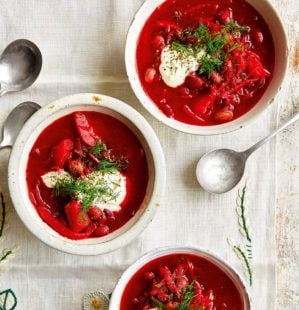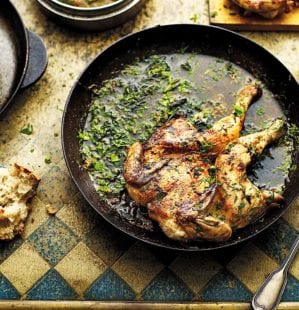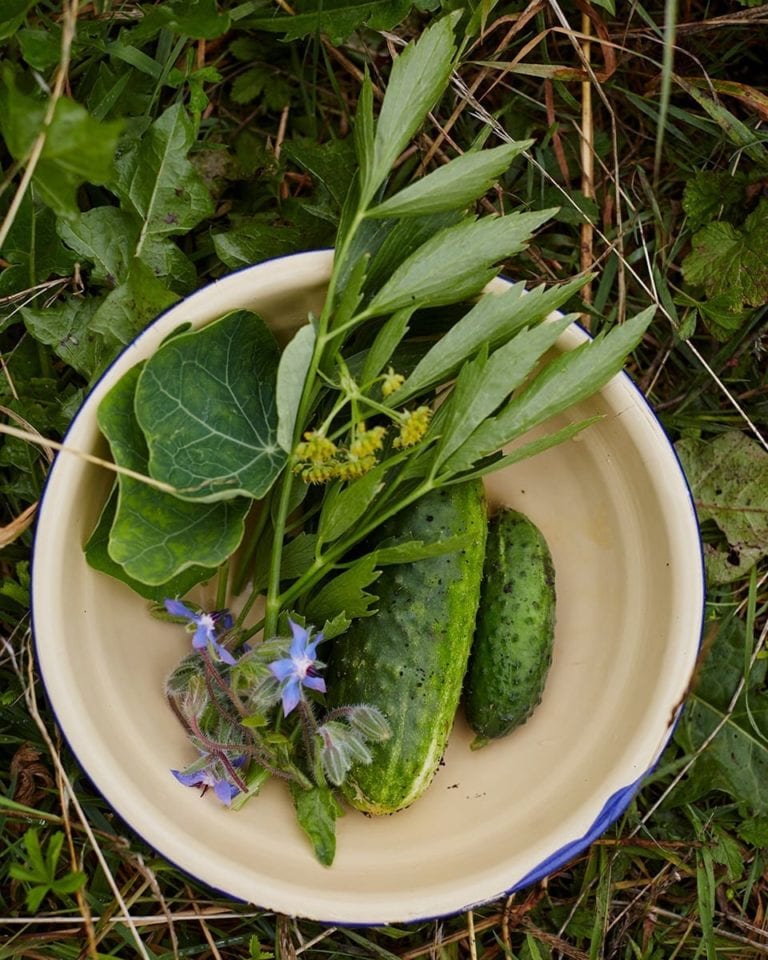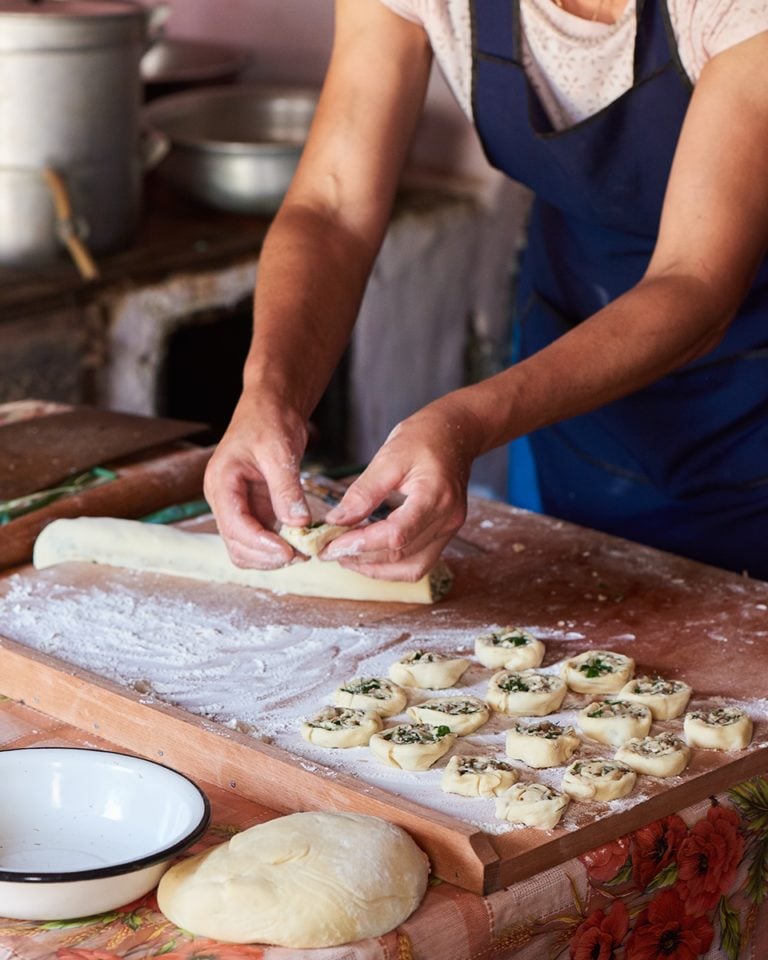Olia Hercules: “Borsch nourished us and made us feel stronger”
When Russia invaded Ukraine on 24 February, the world changed for millions. Award-winning food writer Olia Hercules, whose family live in her Ukrainian homeland, was plunged into despair. She couldn’t cook; she couldn’t eat; but a fire in her belly gave her the strength to co-found the Cook for Ukraine campaign, which has raised over £1 million. And she has rediscovered cooking as solace, sharing hope and nurturing through one very special dish
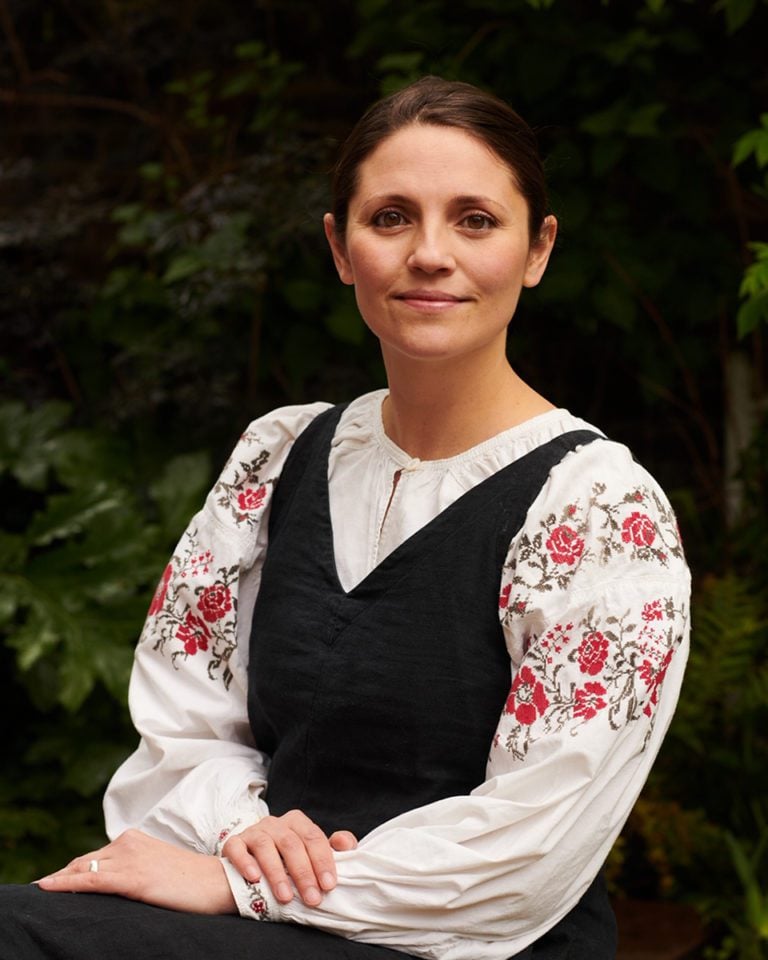
Every single morning in March and April I would send a message to my parents: How are you? If they replied, it was a fairly good day. If they were silent, it was not, so I would give them space and ask the same question the following day.
And then one morning a hopeful answer came from my mum: “Today we made borsch, and it nourished us and made us feel stronger. I really feel like it’s an element of our DNA.” Immediately, I knew there was a turning point, maybe a shift from the initial shock and trauma into the next stage, whatever this may be.
I admire how strong and stoic my parents were at that time. Especially because I myself could no longer eat and could not cook. A friend of a friend started sending me a medicinal Chinese broth every week in the post. It was the thing that saved me, as I could only manage to drink, not chew.
Losing my ability and desire to cook felt strange, like losing a part of myself. Before, whenever I felt stress or a hint of depression approaching, I would cook. Something bread-related usually. The soft dough under the ball of my palm, its stickiness, its comforting sweet-sour aroma, the repetitive movements… It’s the ultimate act of mindfulness. The sensory repetition that forces you to observe the moment, to let go of the insistent buzz of anxiety – preparing food was not just work for me or a quotidian family chore, it was an act of self-care.
When Ukraine was invaded, cooking suddenly felt painful. Instead of healing me, it made me hurt. I realised the act of cooking was interwoven so tightly within my brain with my family and my homeland that simply chopping through a cabbage made me burst into tears. And how dare I feel comforted by cooking when my loved ones and my countrymen are in danger and I am not? It just didn’t feel right.
I begged my parents to leave Kakhovka, my home town. They resisted for so long – why should they leave? How could they leave? Their lives were there: their house, their garden, fruit and pine trees, animals, employees, their livelihood and roots. But finally, after they witnessed my panic attack over a video call, they agreed. I told them if anything happened to them, I would never forgive myself for not convincing them. It took them 16 hours and 19 check points to make the initial part of the journey out of the occupied Kherson region, and then five days of driving to northern Italy, where my mum’s nephew, Ihor, a critical-care surgeon based in Berlin, was able to offer them the sanctuary of his empty holiday home.
“Soon enough the airy kitchen was filled with familiar smells and hope - smells of comfort, not hurt."
I flew to Italy to arrive at the house ahead of them. I knew they would be unimaginably exhausted. I wanted them to enter the house and feel at least a tiny bit at home, with familiar smells and bubbling, the gentle susurration of the stove… Perhaps even flowers in a vase and a cold life-saving beer.
I arrived in the morning and walked to the local supermarket. What an array of ingredients – monk’s beard, puntarelle, all types of artichokes, the cheeses, the pastas! In another life, I’d have squealed at this cornucopia, a food lover’s dream. But this time was different. No fresh beetroot but some pre-boiled? Okay. No dill in sight, but we would have to manage. And finally, success: a good pollo per brodo (a boiling chicken) at the butcher counter – the key element of a good borsch. The bird was corn-yellow, wiry and tough – full of flavour, no doubt, just like at home. My basket soon filled up with white onions and carrots, a young cabbage, some panna acida (soured cream)… Hurray!
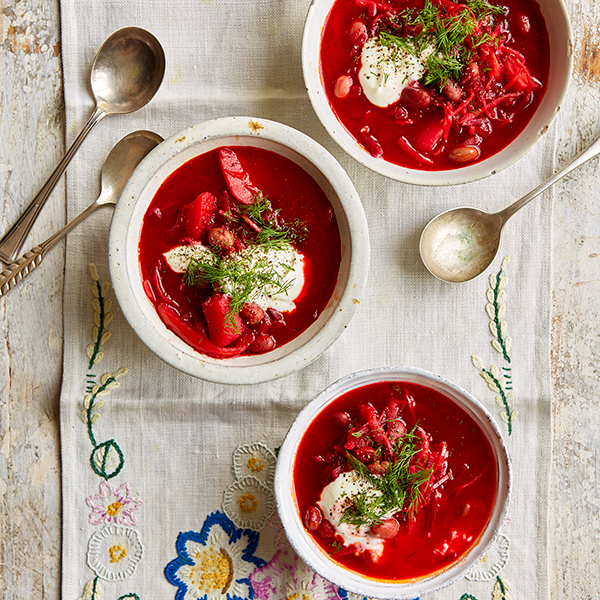
I got back to the house and, with trepidation, started preparing the first proper meal since the big war started. What pleasure, finally, and relief. The chicken’s skin was torched with a dodgy lighter to get rid of the stubbly feathers on the legs and wing tips. The onions were diced and the carrots roughly grated. The bottle of excellent passata? No need for that pinch of sugar. The firm potatoes and squeaky cabbage were chopped – and I didn’t even cry this time. Soon enough the airy kitchen was filled with familiar smells and hope, of comfort, not hurt. I picked some dandelions, daisies, buttercups and a single rose from the garden. They went on the table, into the dusk-lit spot, for atmosphere. The essential beers were chilled and olives put on the table. The massive pot of borsch was almost spilling over the edge… I overdid it in my cooking fervour.
They arrive! We hug and squeeze, I help to bring numerous bags upstairs – whatever of their lives they thought was most essential to bring. One small suitcase is full of family photos and another of mum’s embroideries. We cry, we laugh, I give them borsch. I’m not happy with it – the cabbage got overcooked while we faffed with the luggage; the pre-boiled beetroot makes it taste so-so; there’s no dill… I’m embarrassed, but Mum assures me it’s great.
“How are you?” There are still times when I receive no answer – though safe now, they’re homesick and heartbroken. But mum wants to plant some dill in Ihor’s garden, and I will bring some beetroot seeds in June…
#CookForUkraine
After a sleepless night on 24 February, my close friend, fellow food writer Alissa Timoshkina, messaged me to ask after my family and find out if I was going to the protest. We met there and embraced for comfort and warmth on that cold, windy day – and for a moment felt totally helpless. Then Alissa mentioned CookForSyria, a project that food influencer Clerkenwell Boy and his team initiated a few years back.
Both of us had been involved – I provided a recipe for the book and Alissa organised a fund-raising event. We thought we could run a similar campaign, hoping at least to help promote and educate people about Ukrainian food culture, and perhaps raise a little money for Unicef.
A few months later, there are well over 11,000 hashtags on Instagram and over £1 million raised through our JustGiving page. Ukrainian dishes are being cooked and events being organised in every corner of the planet. We knew people would care, but we could never have guessed that CookForUkraine would become a global movement. Want to help? Visit CookForUkraine and Justgiving.
Subscribe to our magazine
Food stories, skills and tested recipes, straight to your door... Enjoy 5 issues for just £5 with our special introductory offer.
Subscribe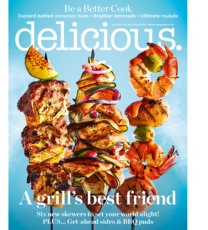
Unleash your inner chef
Looking for inspiration? Receive the latest recipes with our newsletter
